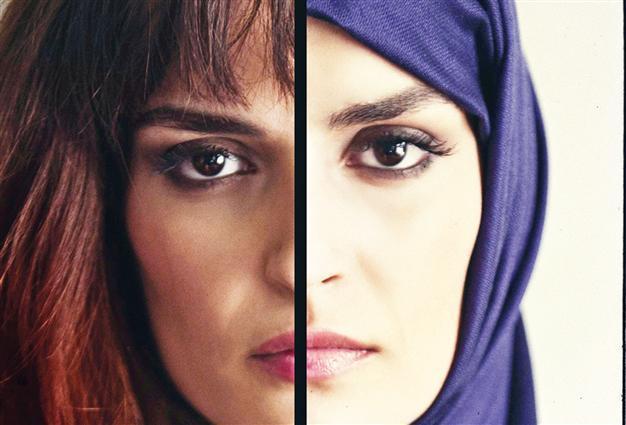Islamist salvation makes way to prime time with TV series
EMRAH GÜLER ANKARA - Hürriyet Daily News

The TV series ‘Huzur Sokağı’is an adaptation from Şule Yüksel Şenler’s bestselling novel of the same name, published first in 1970 The novel is one of the most popular examples of the the salvation novel.
Tune in to Turkish TV channel ATV’s popular new series, “Huzur Sokağı” (Serenity Street), to get a taste of how the never-ending debate over the public presence of Islam is reflected in pop culture. Read some of the comments made about the series by prominent columnists and writers, and you’ll get a feel of how the debate has evolved (and continues to evolve) in the last four decades.“Huzur Sokağı” is an adaptation from Şule Yüksel Şenler’s bestselling novel of the same name, published first in 1970 and has been reprinted more than 100 times since then. The novel is one of the most popular examples of the “hidayet romanları,” or the salvation novels, that brought a new impact onto the literary scene in the 1980s.
The common theme of the salvation novel was a journey from the debauched ways of a secular/Western life style to salvation through the acceptance of Islam. As in many of the salvation novels, “Huzur Sokağı” features a young man idealized by his display of Islamic values, a perfect specimen of the hard-working, honest and loving family member.
The woman, on the other hand, is the ultimate symbol of the “degenerate” Western, someone with no sense of a moral compass in the eyes of the decent people of Islamic belief. As the story goes, the man transforms the woman into a devout Muslim, showing the way to “salvation.”
In his 2007 academic research, “Islamic Literature in Contemporary Turkey from Epic to Novel,” Kenan Çayır gives a thorough account of the changing Islamic identities through literature. For Çayır, salvation novels present Islam as “the source of a value system,” where “strong and stable” Muslim characters are juxtaposed against “degenerate” Westernized ones.
New ways of Islamist expression
Reminding the reader that “the Westernized characters discover solution to their problems in Islam,” Çayır offers a major difference in how men and women find salvation in these novels. “Male characters only need announce that they believe in order to transform into Muslim subjects. Female characters must also don the headscarf in order to become Muslim subjects.”
That is one of the premises of “Huzur Sokağı.” We won’t have to wait too long to see Feyza (Selin Demiratar) wear a headscarf for the love of Bilal (Kutsi), or more accurately, for the love of Allah. Besides being a bestseller and still a favorite to many, “Huzur Sokağı” was adapted to the screen at the height of its popularity more than 40 years ago. “Birleşen Yollar” (Crossroads) starred Türkan Şoray and İzzet Günay.
How then is this Islamic melodrama still relevant now? Kelly Pemberton of George Washington University reflects on how the debates over the public role of Islam in 1980s Turkey led to a series of developments that fueled the debate even further in the following decades. The emergence of “a parallel economy catering to the needs of religious Muslims,” the rise of Islamic parties to the political forefront and the increasing visibility of Islamic expression among the middle and upper classes are some of these developments, according to Pemberton.
In a recent article, daily Hürriyet’s popular columnist Ahmet Hakan asserted that the idea of a “Serenity Street” is now history. “The roles have changed. So have the emotions. And the classes,” wrote Hakan. “That poor, religious street no longer exists. Some of the residents of that street have become rich, those who couldn’t have become middle class.”
For Hakan, none of the characters in the novel exist in today’s stratosphere of an increasing public presence of Islam from politics and economy to education. “Bilal now rides a jeep. Being now dependent upon liberal [forces], he goes to the most prestigious university in the country, with a smirk across his face,” wrote Hakan. “The ‘oppressive, tyrant, Western’ character slandered in the novels have turned into the retired man from middle class who has become poorer, no longer a force to be reckoned with. In short, it’s all now history.” Discussions around the cardboard, unrealistic and outdated characters of “Huzur Sokağı” being relevant to today’s classes and social structures might just be irrelevant themselves. Perhaps, the simple truth lies in the popularity of the series itself. The increasing public presence of Islam in Turkey is manifesting itself in different narratives each day, bringing to the fore new ways of Islamist action and expression.
















